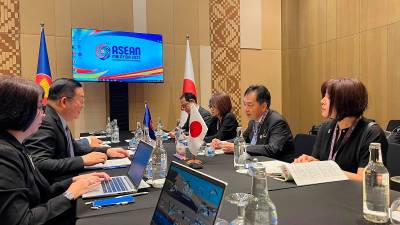LANGKAWI: The ASEAN Plus Three Environment Ministers Meeting has emphasised the urgent need to address the triple planetary crisis of climate change, pollution and biodiversity loss through strengthened regional cooperation.
Japan’s Environment Minister Keiichiro Asao stated that transforming socio-economic systems into sustainable and resilient models is essential for confronting these global challenges.
He expressed confidence that maximising synergies among initiatives would effectively tackle immediate problems while establishing foundations for long-term sustainable development.
“We are currently facing a triple planetary crisis of climate change, pollution, and biodiversity loss,” Asao told the meeting.
“Addressing these challenges requires transforming our socio-economic systems into ones that are both sustainable and resilient.”
Japan committed to continuing close collaboration with countries and organisations worldwide to highlight cities’ crucial role in achieving Sustainable Development Goals and climate targets.
The nation will strengthen cooperation with ASEAN member states while coordinating closely with China and South Korea to ensure regional leadership in global decarbonisation efforts.
South Korea’s Environment Ministry Deputy Director-General Leejae Jang affirmed that his country views ASEAN as a vital partner in addressing global challenges including climate justice.
“We are committed to strengthening cooperation in areas including climate change, biodiversity, and the circular economy,” Jang stated.
Acting Natural Resources and Environmental Sustainability Minister Datuk Seri Johari Abdul Ghani said the meeting aims to deepen partnerships and deliver concrete outcomes benefiting the region and global environmental goals.
He noted that the region continues confronting pressing environmental challenges including marine plastic pollution, transboundary haze and the need for circular economy solutions.
Johari highlighted that the ASEAN Plus Three framework has served as a vital platform for dialogue and cooperation in addressing shared environmental challenges over the years.
Initiatives such as the Marine Plastic Debris Cooperative Action Initiative and Leadership Programme on Sustainable Consumption demonstrate partners’ commitment to regional sustainability. – Bernama
